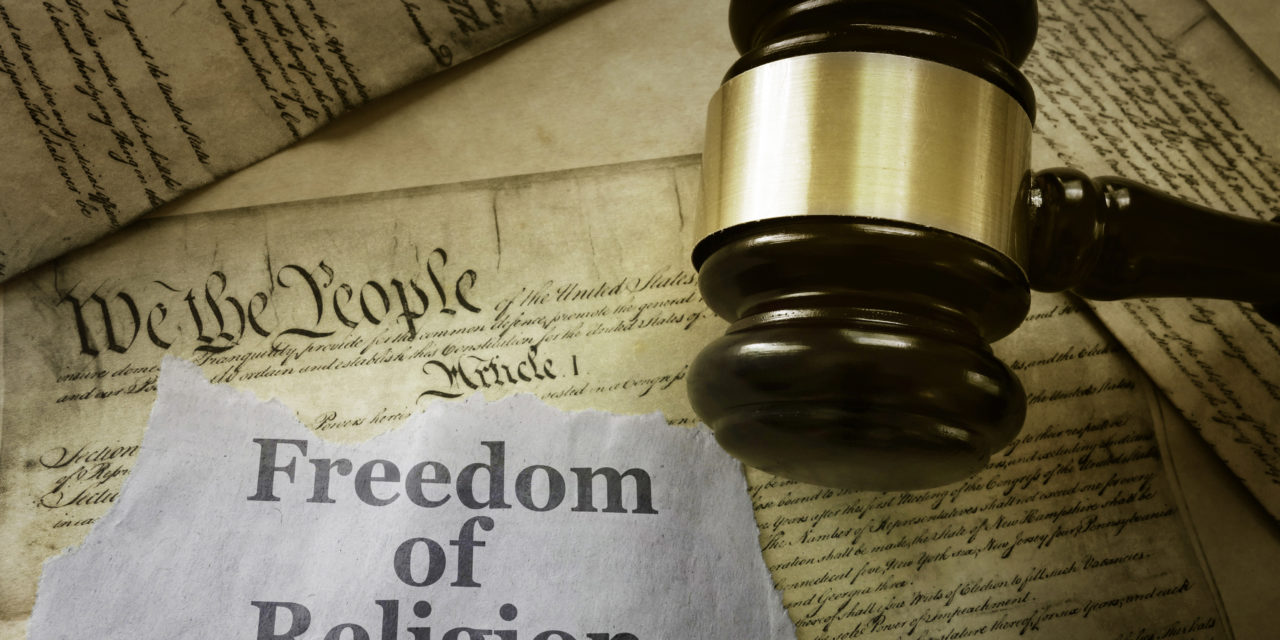The 7th U.S. Circuit Court of Appeals has delivered an important religious freedom victory to religious schools in a case it decided on July 28.
Roncalli High School in Indianapolis, Indiana, is a Catholic educational institution. It terminated a counselor named Lynn Starkey in 2018 after she informed the school administration that she was in a same-sex relationship, in violation of her contract and centuries-old Catholic teaching.
Starkey responded to her termination by suing the school under federal non-discrimination laws as well as state law claims. The school defended against the lawsuit by relying on the First Amendment doctrine called the “ministerial exception,” which shields religious organizations from government interference in their hiring decisions when it comes to employees who inculcate others with the faith principles of the institution.
The U.S. Supreme Court has, in the last 10 years, ruled in a couple important cases involving religious schools and their employees, including Hosanna-Tabor Evangelical Lutheran Church & School v. EEOC and Our Lady of Guadalupe School v. Morrissey-Berru, both of which were decided in favor of school hiring practices. The high court’s explanation in those cases of what it considered to be “ministers” for First Amendment purposes included much more than simply ordained heads of churches or institutions such as schools.
Starkey, however, claimed that she did not teach religion at the school, and was not a practicing Catholic, and therefore the school could not claim she was a “minister.” The federal district court who first heard her case decided she did fit the Supreme Court’s definition of “minister” and ruled against her in 2021.
The 7th Circuit, whose decisions binds all states within its jurisdiction, including Indiana, Illinois and Wisconsin, agreed with the lower court’s dismissal of all of Starkey’s claims.
“Starkey was a minister because she was entrusted with communicating the Catholic faith to the school’s students and guiding the school’s religious mission,” the decision stated. “The ministerial exception bars all her claims, federal and state.”
The over-arching purpose behind the “ministerial exception” involves the autonomy of churches and religious institutions. The First Amendment’s Establishment and Free Exercise clauses work together to keep government from intruding into and interfering with, to quote from the Supreme Court’s Hosanna-Tabor decision, the “internal governance of the church” or religious institutions, especially where such intrusion could “deprive the institution of control over the selection of those who will personify its beliefs.”
What the Supreme Court didn’t address in Hosanna-Tabor, however, was whether the “ministerial exception” operates to block state law claims in addition to federal claims. The 7th Circuit, following the lead of several of its sister circuits, concluded that Starkey’s state law claims were also barred.
The school was represented by the Becket Institute for Religious Liberty.
“Religious groups have a constitutional right to hire individuals who believe in their faith’s ideals and are committed to their religious mission,” Luke Goodrich, vice president and senior counsel at Becket, said in a press release. “Our justice system has consistently ruled that the government cannot intrude on a religious organization’s choice of who will pass on the faith to the next generation.”
Judge Frank Easterbrook, in a concurring opinion, would have gone even further with the court’s analysis, suggesting that the federal non-discrimination law at issue in the case, known as Title VII, goes beyond simply protecting religious-based employment decisions affecting “ministers,” which is a First Amendment rule.
Citing several provisions of Title VII, Easterbrook wrote, “Section 702(a) permits a religious employer to require the staff to abide by religious rules. A religious school is entitled to limit its staff to people who will be role models by living the life prescribed by the faith, which is part of ‘religion’ as §2000e(j) defines that word.”
Easterbrook, who has served on the 7th Circuit since 1985, enjoys wide respect across the federal judiciary and the legal profession at large. His legal analysis on issues carries a lot of weight. His concurrence, if eventually adopted by his and other circuit courts, would give an even bigger boost to the religious freedom hiring rights enjoyed by faith-based institutions in this country.
Photo from Shutterstock.






